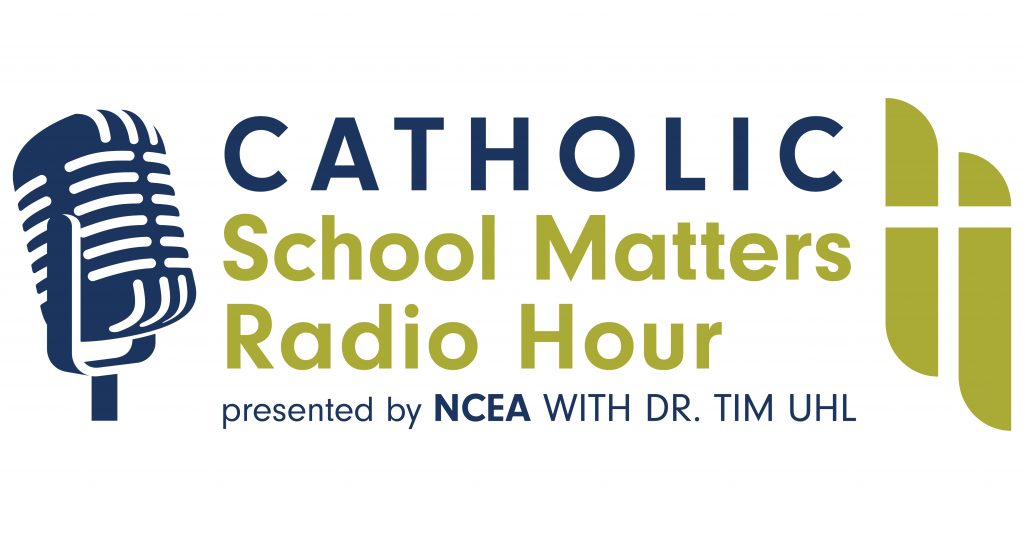
This week’s blog centers around my new book, Orchestrating Conflict: Case Studies in Catholic School Leadership. I hope to explain why I wrote it, why I think it’s valuable, and why I think you should read it.
Over the past few years, I’ve seen friends in Catholic education endure some really difficult situations. As the pressure on keeping enrollments at sustainable levels have reached critical stages, the moral quandaries have seemingly become more difficult. How does one prepare for the kinds of conflicts which can divide a school community when we can least afford any division? Or, perhaps better, how do we learn from the experience of other Catholic school leaders as they’ve navigated these troubled waters?
A couple of years ago, I read a book on deliberate practice entitled Peak: Secrets from the New Science of Expertise by Anders Ericsson & Robert Pool. It inspired me to begin thinking about how we could apply deliberate practice principles to forming Catholic school leaders. I started writing scenarios, then some of them became case studies, and before I knew it, I had a book proposal!
I finished the book last fall and it’s now published. Orchestrating Conflict: Case Studies in Catholic School Leadership is now available on Amazon and Barnes & Noble. I believe the book will enrich your understanding of the conflicts in our Catholic school communities and will help stakeholders navigate those controversies.
The case study method and deliberate practice—involving a systematic method of analyzing and reflecting on conflicts—will help Catholic school leaders to meet the challenges of Catholic school leadership as they face a myriad of conflicts and controversies which are dividing many school communities. Inside are twelve case studies, a method for learning from these controversies, and an appendix full of other potential scenarios for further study. The case studies cover topics that are controversial now in Catholic schools and reveal the conflicts between different factions in Catholic schools.
The book suggests paying attention to the particulars in each situation and orchestrating the conflicts between community and policy. The title came from Ron Heifetz who suggested we need to spend time on the balcony as well as on the dance floor, orchestrating and acting simultaneously. We need to talk about the controversies and this book allows for leaders to explore ways to explore ways to orchestrate conflict.
Top 5
In this week’s blog and podcast, I introduce my new book, Orchestrating Conflict: Case Studies in Catholic School Leadership. I’ve also included a case study about discipline and African-American braids and some great articles. The Top 5:
- In the Leadership section, the first link is to information about a new Strategic Planning course produced by the Arrupe Virtual Learning Initiative. I’ve taken the course and found it extremely useful. See this link for more information.
- In that same section is a 5-minute TED video on effective feedback. It’s a very interesting and practical video.
- In the Teaching & Learning section, the best link I can provide in this issue is from the great blogger Larry Ferlazzo entitled “Gold Mine of Resources for Educators Preparing for School Closures.” He provides a link to many resources and it will be a page I will want to continue to check. How does one plan for a Virtual Day for second graders? (This is a question I ponder since I have one of those living in my house!). Larry delivers once again! We need to be prepared for how the Coronavirus response will impact our schools.
- In the Miscellaneous section, the first article “The Definitive Guide for Handling Haters” by Maria Popova (of the “Brain Pickings” blog) is simply fantastic. It gives you inspiration on how to handle criticism and push forward with your ideas. If you’re a school leader facing criticism about a tuition increase, or the parent of a middle schooler (!), or guiding a project toward completion, you’ll find this article speaks to your reality.
- The next article in that section details Mitch Daniels’ efforts to freeze tuition at Purdue. In Catholic schools, I hear talk about what we don’t have (resources, students) or what we can’t provide (higher salaries, better facilities) but we don’t focus on what we do—provide an excellent education for as little cost as possible. Mitch Daniels has done this on the university level and it’s worth considering.
Have a great week! I’m going to take a week or two off to complete some important projects so will be back later this month.
Podcast
This week, I present a different type of Catholic School Matters Radio Hour podcast. I sent three people sample chapters from my new book and we had conversations about what they thought, how they were inspired and whether they thought the case study worked for them. All three are return guests: Dr. Ann Garrido, author and last year’s NCEA keynoter; Dr. Mimi Schuttloffel, formerly of Catholic U. and now from St. Paul Seminary; and Joe Womac of the Specialty Family Foundation in Los Angeles. All three are return guests and old friends so the conversation is rich and enjoyable.